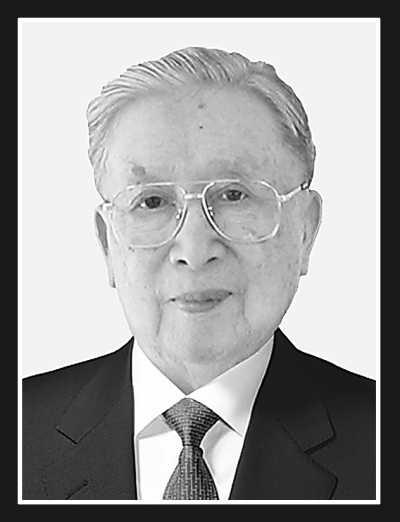(From China Daily, 2011-03-04)

BEIJING - Wu Jieping, a founder of China's urinary surgery science and former leader of the non-Communist party Jiu San Society, died on Wednesday night at the age of 94.
Widely recognized as a defining figure in the Chinese medical profession, Wu made remarkable contributions to medical science in general and the practice of urinary surgery in particular.
Wu is responsible for a variety of surgical innovations, including the use of a special urethral catheter in prostate surgery. The device came to be known as the Wu Catheter. His medical team also performed the first kidney transplant in China in 1960.
Wu's achievements earned him positions on a wide range of Chinese and international medical organizations concerned with organ transplants, surgery and family planning.
He played important roles in the establishment and development of some of China's best medical schools, including the Capital Medical University and Peking Union Medical College.
Wu was also a pioneer in promoting sex education in China. He founded the Chinese Sexology Association, edited the first Chinese book on sexual medicine in 1982 and organized the first sex education seminar in China in 1986.
In 1991, he received the World Health Organization's gold medal in recognition of his work to discourage smoking and spread healthy habits among the public.
The Royal Belgian Academy of Medicine granted him a medal of honor in 1993, and the American Urological Association elected him an honorary foreign fellow in 1995.
He was also a recipient of the Grand Medal of Paris and the Suzuki Uro Medicine Award of Japan.
A native of Changzhou, East China's Jiangsu province, Wu graduated from Peking Union Medical College with a doctorate degree in 1942.
He later went to the University of Chicago to study urological surgery from 1947 to 1948, working under Charles Huggins, who won a Nobel Prize in 1966 for his work in using hormone therapy to control the spread of cancers.
On his return home, Wu began a long and distinguished career as one of the leading urologists in China.
He served as the personal physician of some of the top leaders in China, including late Premier Zhou Enlai. He also successfully treated the former Indonesian leader, Sukarno, in 1962
The Wu Jieping Medical Foundation, a charity founded in 1995 to promote medical research, is named after him.
He joined the Jiu San Society in 1952, and served as the chairman of the organization from 1992 to 2002. He was also vice-chairman of the eighth and ninth Standing Committee of the National People's Congress, China's top legislature.
Of his various titles, ranging from "president" to "senior academician at the Chinese Academy of Sciences and the Chinese Academy of Engineering", he used to say, "I like being called 'Doctor Wu' most".
Others, though, thought of him as "teacher".
"My teacher Wu Jieping once told me that medical workers should take full responsibility for their patients, because they trust their health and lives to us," said Guo Yinglu, an 81-year-old member of Chinese Academy of Engineering and a leading Chinese urological surgeon.
"These words have enlightened my whole life."
China Daily
Related News
Photos
More>>trade
- 13th International Bio-Tech Symposium(IBS-2008) & Expo Opened in Dalian
- Prof. Ling-Ai Luo Invited as Guest-Professor of DICP
- "12th International Symposium of Stereodynamics of Chemical Reactions" held in
- Prof. Nam-Hai Chua Visited DICP
- The visit of Professor Enrst, the Nobel Prize Laureate in Chemistry
market
finance
- 23rd International Symposium on Molecular Beam(ISMB) Opened in Dalian
- 2nd Annual Meeting of Chinese-French Joint Laboratory for Sustainable Energy
- Visit of Prof. Tkatchenko at DICP
- Lectures by Scholars of Queen's University Belfast at DICP
- Prof. Cl ment Sanchez and Prof. Bao-Lian Su Invited to present DICP Anniversary





